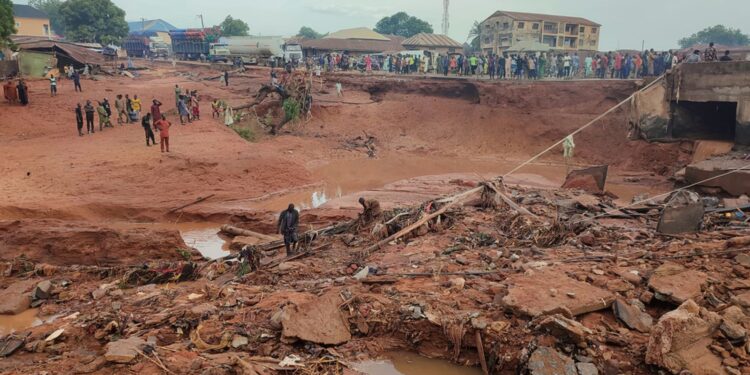At least 150 people have been killed in Nigeria following heavy flooding in the country. The devastating floods have caused widespread destruction, displacing thousands of people and leaving many homeless.
The flooding was triggered by heavy rainfall, which led to rivers overflowing their banks and submerging entire communities. Rescue efforts have been hampered by the extent of the flooding, with many areas inaccessible by road.
Local authorities have declared a state of emergency in the affected regions, and relief efforts are underway to provide assistance to those affected by the disaster. The Nigerian government has also appealed for international aid to help with the relief efforts.
The flooding in Nigeria is not an isolated incident, as the country is prone to seasonal flooding during the rainy season. However, the severity of this year’s flooding has caught many by surprise, leading to a higher death toll than usual.
In addition to the loss of life, the floods have also caused extensive damage to infrastructure, including roads, bridges, and homes. The cleanup and rebuilding efforts will likely take months, if not years, to complete.
The disaster has once again highlighted the urgent need for better disaster preparedness and response mechanisms in Nigeria. Climate change is expected to increase the frequency and intensity of extreme weather events, making it all the more important for countries to be prepared for such disasters.
As the death toll continues to rise and the full extent of the damage becomes clear, the people of Nigeria are left to pick up the pieces and rebuild their lives in the wake of this devastating flood. The international community must come together to support Nigeria in its time of need and help prevent such tragedies from happening again in the future.





























































